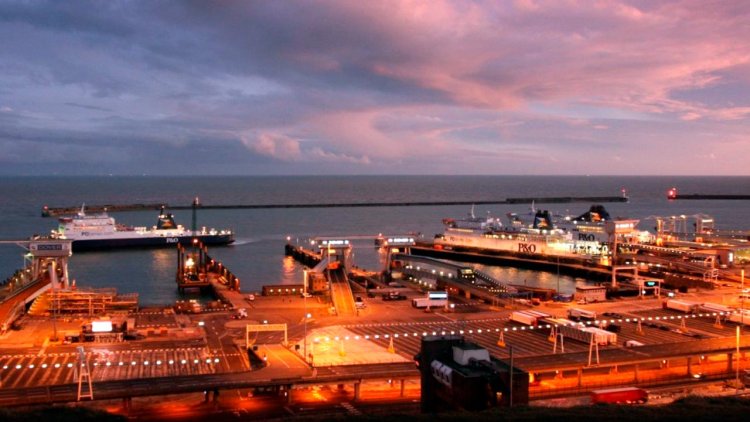New project to investigate net-zero options for channel ferry fleet
The Dover Clean Ferry Power project has been awarded funding of £450K, as part of the UK Department for Transport’s £20 million programme.

The University of Kent is leading a new research and innovation project with the Port, P&O Ferries, Warwick Manufacturing Group and Schneider Electric to investigate steps towards decarbonisation of the cross-channel ferry fleet. This project will support the delivery of the Port of Dover Air Quality Action Plan.
Vicki Beatty, Head of Safety, Quality and Environment at the Port of Dover said:
“As the UK approaches the important hosting of COP26, the United Nation’s climate change summit, we are delighted to be working with The Dover Clean Ferry Power (DCFP) consortium, including customers and academic partners, on the opportunity for hybrid and fully electric propulsion vessels on this critical trade route between the UK and its main trading partner, the European Union.
This project supports the design and development of technologies for the reduction of greenhouse gas emissions as set out in the Clean Maritime Plan. This will help us understand how to capitalise on the unique benefits that Dover offers now as the shortest crossing to Europe, ensuring its efficiency, capacity and resilience can continue to be enjoyed by future generations across the nation.”
The seven-month project will be led by Kent Business School, utilising the University’s experts in sustainability, cost-analysis and economic development to investigate decarbonisation options and optimising energy demands to see how net-zero energy can be supplied to ferry vessels.
Currently, Port of Dover vessels spend energy through in-harbour activity, open sailing and on-vessel services (such as heating, lighting and hospitality). Some vessels are hybrid; self-charging on-board batteries whilst in open sailing and then using the battery charge whilst in-harbour.
The project will analyse how much net-zero energy can be stored and delivered in-harbour, to accelerate the adoption of hybrid or fully electric propulsion vessels in the Short Straits (Dover to Calais and Dunkirk) ferry fleet. Insights gained may then have the potential to extend to cruise and cargo operators, as well as adaptation of experienced vessels.
Simon Barnes, Funding & Partnership Development Manager in the University of Kent’s Research and Innovation Services Operations and Project Manager said:
"For the University of Kent, this new project builds on a previous successful work with the Port of Dover and is an excellent example of a collaborative project with the University, industry partners and consumers.
It is our unified aim to investigate potential avenues that can lead to reductions in carbon emissions as part of the national priority of net-zero. The University of Kent is dedicated to the endeavour through a series of initiatives, with the Dover Clean Ferry Power project as a prime example of the role we play regionally and in applying intensive research to vital national goals."



























